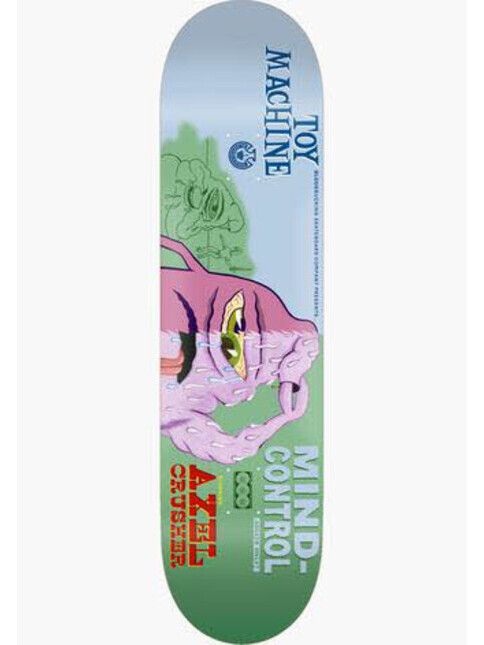Letztens haben wir die Chance bekommen Bob Burnquist zu interviewen, also fast. Wir durften zusammen mit Journalisten aus aller Welt Fragen vorschlagen und die wurden ihm dann unter kontrollierten Bedingungen gestellt und wir durften dabei zuhören. Das Ding kam zustande durch seine Nominierung für einen Laureus Awards. Wie Bob zu Skaten im Alter, Videoparts vs. Contests, Frauen-Megaramp-Skaten und einem neuen Street Part steht könnt ihr hier nachlesen. Leider wurden die Fragen zum Doggy-Style-Megaramp-Try oder zu einem Switch Heel das Gap nicht gestellt... Wie auch immer, hier ist der Spaß gemischt mit den Fotos eines exklusiven Videograbshootings mit Bob!
BOB BURNQUIST INTERVIEW
Brazilian skateboard star Bob Burnquist has won 30 career X-Games medals
and has been nominated for the 2016 Laureus World Action Sports Award,
which he last won in 2002.
Laureus editorial content is available for Print and Online
use free of charge provided full credit is given, for example
….’Bob Burnquist was talking to Laureus.com’
Editors: please use Laureus material as part of your stories
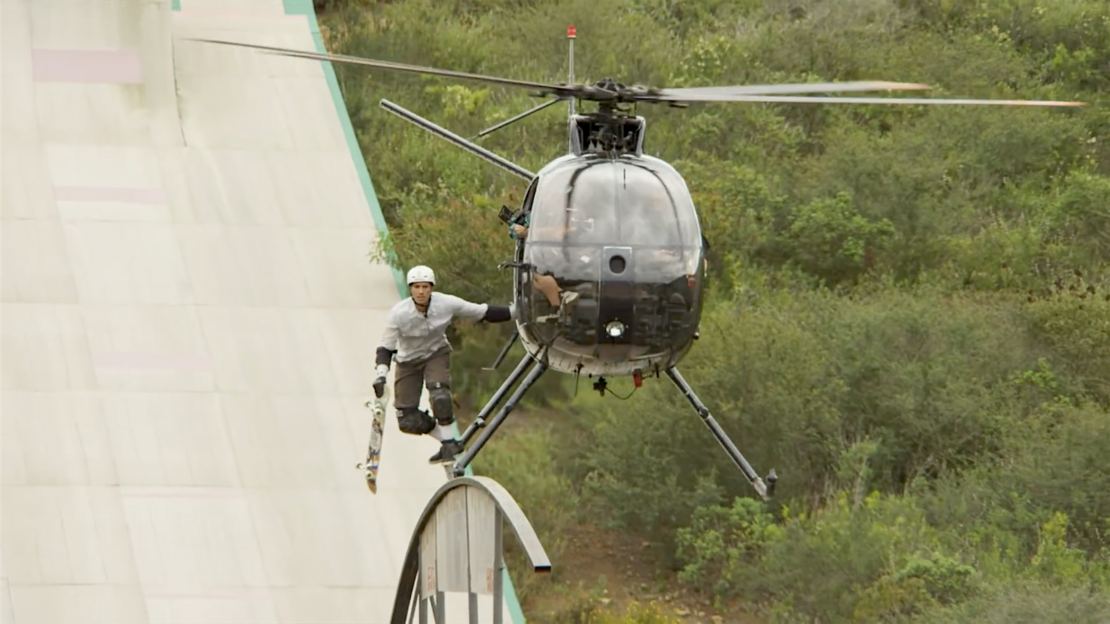
Switch!
Question: What is your best trick?
Bob Burnquist: My best trick. I don't know. I mean, I love to skate. I guess like not necessarily a trick, but I really like the Big Air, the Mega Ramp genre. So just doing Big Airs, that is satisfying enough.
Question: You're 39 years old now but still beating the world. How do you relate to your young opponents?
Bob Burnquist: You know, one of the great things about skateboarding, you can relate to tricks, you can relate no matter what age and skill level. I mean, you're skateboarding. And I know that a lot of the young guys, like Tom Schaar, really the young guys that have watched me skate since before they skated. They look at me like ‘oh, my gosh, who is this guy that's almost unreachable?’ I really like that inspiring fact. And I look at them and go, well, if you guys are pushing and you're skating, I'm going to keep going.
Question: Do you have a point in your mind where you want to stop, or will you just keep going?
Bob Burnquist: I try not to put numbers, days, year, age. It feels great. I'm going to keep going as much as I can. If I ever feel like I'm not giving people or I'm not performing right or I'm maybe not at the top of my game, then maybe I'll think of not competing. But you know, skateboarding, you don't need to compete to stay relevant. I can create content in so many different ways.
Question: Do you have to make any compensations with learning new tricks now that you're a little older?
Bob Burnquist: There's nothing different. A broken bone feels the same at 39 than it did at 12. It's the same pain, right. And I guess it's the recovery process. I feel healthy and I feel great. I definitely have a work-out programme. I try to do as much as I can to stay on it. And coming back from injuries is really the gauge. So as long as I can keep it, as long as I heal up, if I can keep that going, then it's fine. So it's not necessarily the age. It's how much you're using your body in activity. If you're using it, it doesn't really age. If you don't, then it can age up quickly and it can kind of stiffen up. So I still feel really good.
Question: Apart from yourself, who are the best experienced skaters today?
Bob Burnquist: I would say one of the guys I really look up to, just for his longevity in competing now is Bucky Lasek. I remember that the year Bucky turned 40, he won four golds. I remember thinking ‘wow, I would love to be at that level when I turn 40’. So looking at guys that are ahead of you and still pushing, and like Tony Hawk, obviously to still compete, to still skate, to still be on it and be so active, they are inspiring. And I think that's it. I think Bucky is one of the best competitive skateboarders that there is and I don't know, 40 something and he's going to win a contest this year.

Drop
Question: Where do you see the sport today and where can it go next?
Bob Burnquist: I think just the fact that it's being thought of for the Olympics means a lot, means that, hey, this is a sport and this is an activity that a lot of the young guys do, so we need that audience and we need to tap into that generation, because times change and sports evolve and people's activities grow.
So it's great to see skateboarding where it is, and how it's established itself as lifestyle and as a sport, and it helps so many kids around the world finding something positive to do. It really connects the dots. So to see it being pondered for the Olympics is great. I'm always reticent and I always want to make sure that it’s the right organisation. So it feels like ISF is the organisation for skateboarding being in there, and that's who I am behind and I am supporting. I think that there's a decision from the Olympic Committee coming up any time now as far as what organisation is going to govern skateboarding, so just kind of wait and see, see how that goes. But that's where we're putting our support. If it goes to a different organisation, you're going to see a lot of, well, 100 per cent of skateboarding, being very against skateboarding and the Olympics. But as it grows, people are excited because there is an organisation and there is a movement with the right people behind it. So it could be a very, very real possibility for 2020 in Tokyo.
Question: Could you still be skating in 2020? Could you be going for a gold medal?
Bob Burnquist: You know, the way my life has gone and goes, I put no limits or negative statements out. I'm going to keep skating, keep going, I don't know what level or what category it's going to be in. I don't compete in Street. I don't necessarily compete in Cross. I compete in Vert and Mega Ramp. If one of those are included, then there is a possibility of my involvement. If not, it could be now or it could be five years ago, I don't compete in Street. So it just really depends on what the category will be.
Question: What do you say to people who say that skateboard is more lifestyle than sport and shouldn't be in the Olympics?
Bob Burnquist: Well, I'm one of those in a way. But I think there's a time for everything and there's an evolution and a progression to this point. For a long time, I was very against it, and then for a while I was on the fence. So let's make sure we take control of that because we don't want it in the wrong hands. And regardless whether it's in the Olympics or not, skateboarding is going to continue to be more of a lifestyle than a sport. But we box it up in competitions, like X Games, and different competitions in skateboarding throughout the years. The people and the skateboarders, they are divided into groups of like, hey, we're into competing. And another group that's like, hey, we're just into creating and living this lifestyle and creating content. So whether it's Olympics or not, even with the competitions that are already in place now, there are skateboarders that aren't into necessarily competing.
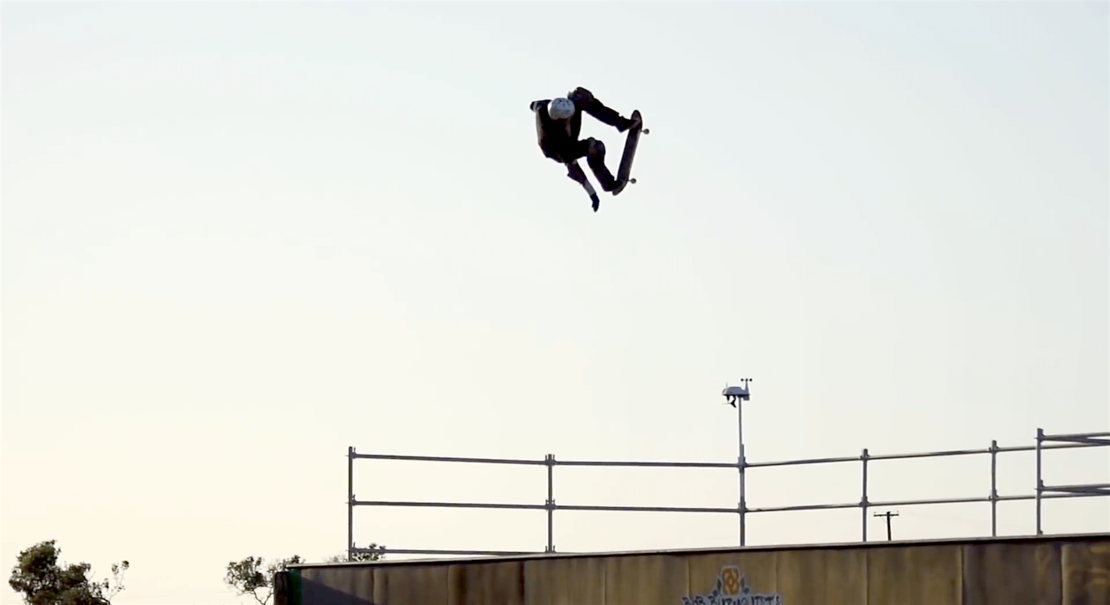
Ollie fakie
Question: There seems to be a lot of progression of women in skateboarding?
Bob Burnquist: They are progressing intensely and creating their own space for quite some time now. They are from all over the world. You are seeing this movement grow more and more. Obviously the skateboarder that comes to my mind as a Brazilian is Leticia. But there are others from back in the day like CaraBeth Burnside that have been skating and doing their thing and pushing, inspiring other women to skate. It's great to see.
Question: Do you see potential for women's Mega Ramp skating at any point?
Bob Burnquist: Well, realistically, at this point, I don't see anyone riding the Mega Ramp to that level. Now they can compete between themselves at a certain level. There are a couple of names that I could see getting on the Mega Ramp and starting that progression, but right now, they are not there. There's no competition. It would take some years to develop and it would have to be a natural progression. There's maybe one or two that I see that if they wanted to, they could start progressing on a Mega Ramp.
Question: Which is more important to you, making videos or competition?
Bob Burnquist: Video for sure. When I do compete, I give it all I have. When I'm filming, that's really where you're showing and you're progressing skateboarding, where you can show the technical progression. When you film technical tricks that take hours to land and then you create those seconds and then keep adding those seconds to that trick and then after two to three years of extensive filming and then you put a fiveto-six minute part together, that is like the creme of the creme that you're putting out. I'd rather put a video out that's respected and people just are in awe than to necessarily win again, right. But they both walk hand in hand, because competing and being successful there, gets your name out there and you get skateboarding out there. So there's two different worlds and I make sure that I walk that fine line and that I have good video cards and that I can still be relevant competing. But the videos still hold the higher meaning of skateboarders.
Question: You grew up skating any kind of terrain. Recently you're best known for Mega Ramp. Have you thought of filming a new Street or Backyard Bowl part like Lance Mountain did recently?
Bob Burnquist: Well, I do, because of Mega and the amount of parts and tricks and video and content that people have seen of me on the Mega Ramp, it is natural that they would think that that's all I do, because that's what you see. But I definitely skate all kinds of other terrain from Vert to Bowl to Backyard Bowls and, yes, even Street. And I have been way more enthused about coming back downtoearth a little bit and skating, more technical but in the Bowl. I just competed in Brazil. It was the first time I competed in a Bowl event in a while, so that was cool to be involved. Ended up making top five. So that was like, wow, it felt great. So I feel like I can continue to pursue and film in places other than the Mega Ramp and I have already been doing that.
Question: You're also well known for skating Switch on Vert on the Mega. What were your inspirations for that?
Bob Burnquist: Well, I've been pursuing the Switch dream for quite some time, and that has more to do with adding more opportunities to learn new tricks. So when I was younger, I wanted to learn tricks every day. I still do. That's the thing, let's learn something new, and then I would learn a few tricks and once I started skating Switch, it opened up this whole range; so instead of one trick now, there's an opportunity for two, regular and Switch, right. So now I have more options to try something.
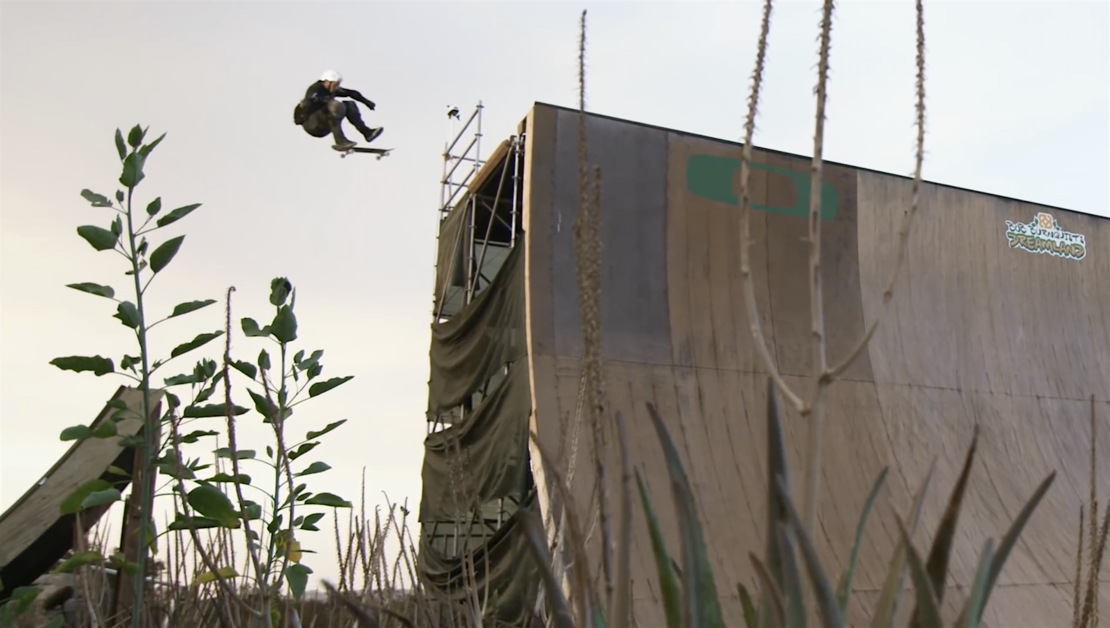
Kickflip am Londongap
Question: Can any skater be taught to ride a Mega Ramp? How much of it is skill?
Bob Burnquist: To ride the Mega Ramp, if you're only Street, it would be hard if that's all you're versed in. So if you skate Vert, then you have more of a chance to make that leap. Now, most Street skaters have somewhat of a transition skill, so I can see most of them jumping the ramp, getting across it. When it comes to hitting the quarterpipe, that's another reality. Because the quarterpipe demands a lot of transition skill.
Question: What was your worst moment?
Bob Burnquist: Moments of pain. Those are bad. And then they are followed, usually, by the great moments depending on how you keep pushing it. One of the worst moments, obviously breaking my face was horrible, it was painful. It was just like, oh, my gosh, that just happened, and then continued to push and skate, and then still be able to come out with something, and then breaking my wrist, I was in so much pain. When something like that happens and you come around and you keep pushing and you keep believing, and you end up with a reward.
Question: Do you think you revolutionized skate when you landed a 900 on a Big Air quarterpipe in 2011?
Bob Burnquist: The 900 had already been done by Tony Hawk back in '99 on the Vert Ramp and that was incredible. Landing the 900 on the Mega Ramp was a big jump because I was trying it for a long time. It wasn't necessarily that I landed the 900, it's just the way I was able to do it, because it's just what came more natural to me was to do it Switch, to do it Fakie, start backwards and end up backwards. So in that way, I know that I'm the only one that has done that, but also, it was the only way that I found to do it. So I actually think the other way to do the 900 is a lot harder. It's a matter of perspective. I feel like that did change things, but not necessarily that I revolutionised skateboarding with that. It's just another trick, but I see to this day in other skateboarders’ runs, that the influences are there.
Question: What is a typical day for Bob Burnquist at the moment?
Bob Burnquist: I've been skating, I've been going back and forth to Brazil a lot. I've been spending a lot of time there, almost like three weeks there, two weeks here, just back and forth a lot. So either I'm preparing to go to Brazil or I'm preparing to come here [US]. And then I'm skating as much as I can, any terrain that I can where before I would focus on one thing. Now I have like five or six board set-ups. Like each board is for one thing. I have a Street board, a Vert board, a Pool board, a Mega board and then I just grab it and go. If I want to skate, cool, I'll skate it. If I want to ride the Mega Ramp a little bit, I'll skate it. Then make sure that I'm eating everything I need to eat because I do use a lot of energy. The strengthening, the training outside skateboarding. I started jiujitsu about a year and a half ago, and that's been helping with the stamina and also with the mind. So yeah, I try to stay very active and try to just wake up and get things that I need to get done, but I make sure that skateboarding is in the todo list on the day.
Question: Can you tell us about "Dreamland" and how you got the idea and how it works?
Bob Burnquist: It was a dream when I was a kid to have a ramp in my backyard. And as time went by and I became a professional skateboarder in the US and was able to search out and find a place to live, I made sure that I was looking for somewhere that I could build ramps. That was my focus. As I looked at houses, I was looking at the backyards and making sure that I could fit a ramp wherever I found the place. When I found this place here in Vista, I kind of just saw this big open space, and the house needed a lot of work but it didn't even matter. I saw the ramps and could already envision it. So we made the move and started building, and it just grew and grew, and added a corkscrew, added a full pipe, a loop. And then like years after, about 2005 or 2006, started building the Mega Ramp. But just being here, it makes me so blessed, because I know how hard it is and how many people want to have a place to skate. And how I had grown up in Brazil, didn't really have any places to skate. Had to get on the bus, crowded bus for hours to get to a park and skate and get on the bus back for hours. And now I can just stumble up out of my bed and I'm skating a Mega Ramp.

Dummdrop!
Produkte, die Sie interessieren könnten
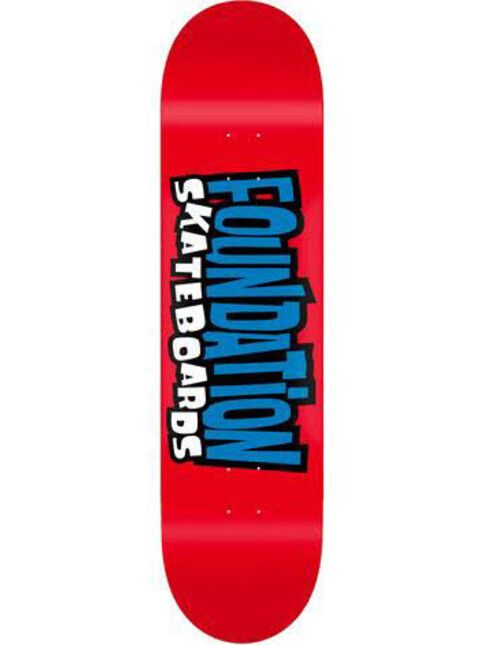
Skateboard From the 90´s 8.0 red
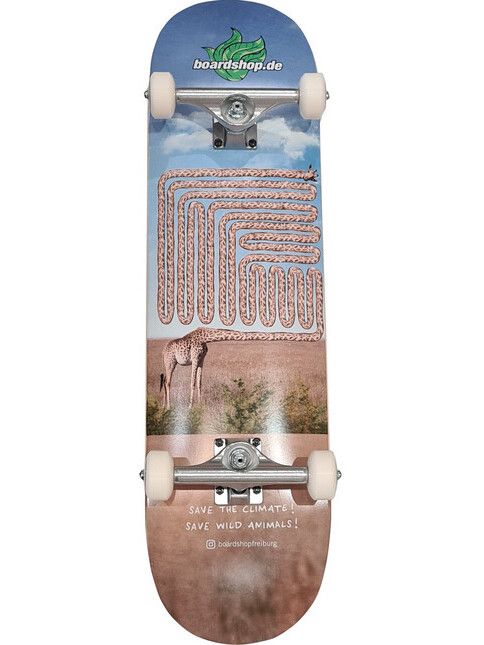
Skateboard Giraffe 8.375 complete hollow
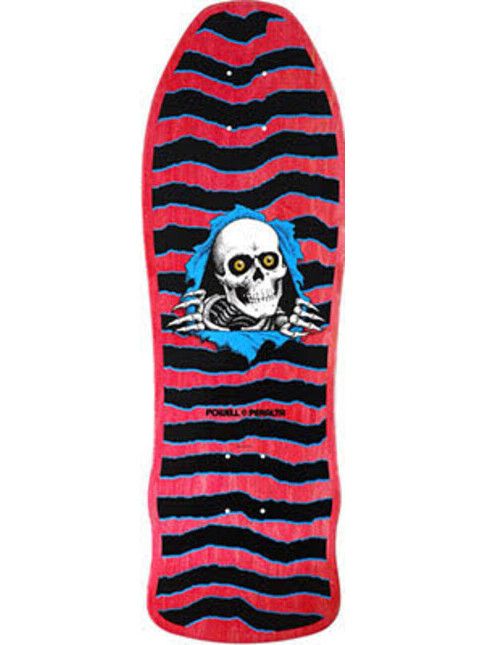
Skateboard GeeGah Ripper 9.75
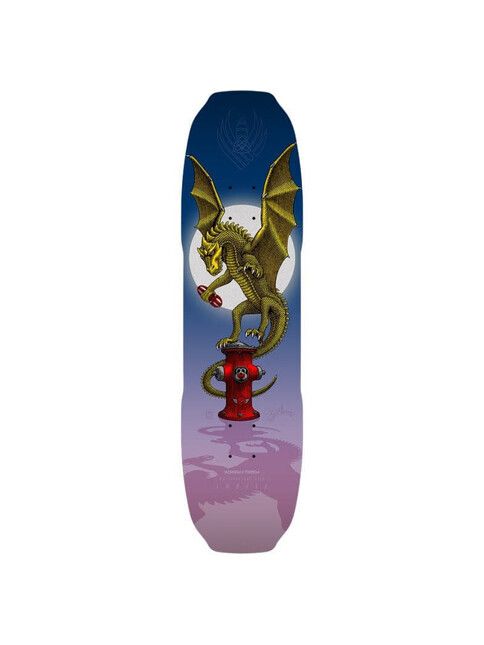
Skateboard Flight S302 Andy Anderson Hydrant 8.4
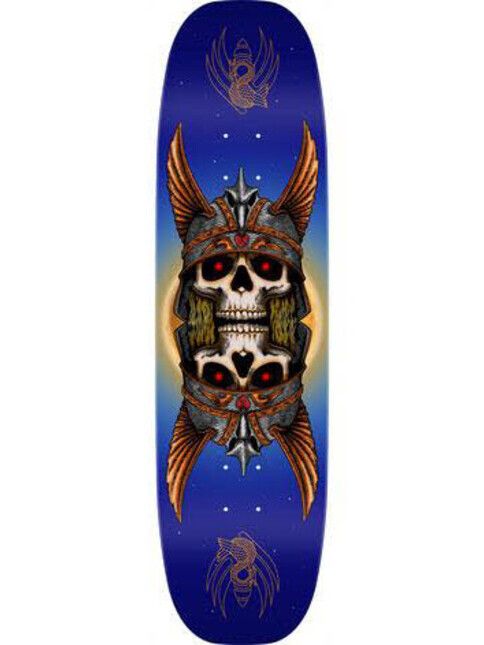
Skateboard Flight Pro S 301 Andy Anderson 8.7
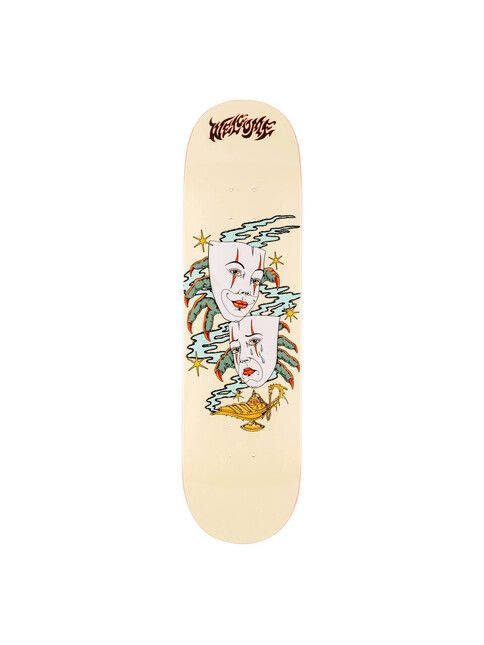
Skateboard Wish Popsicle 8.5
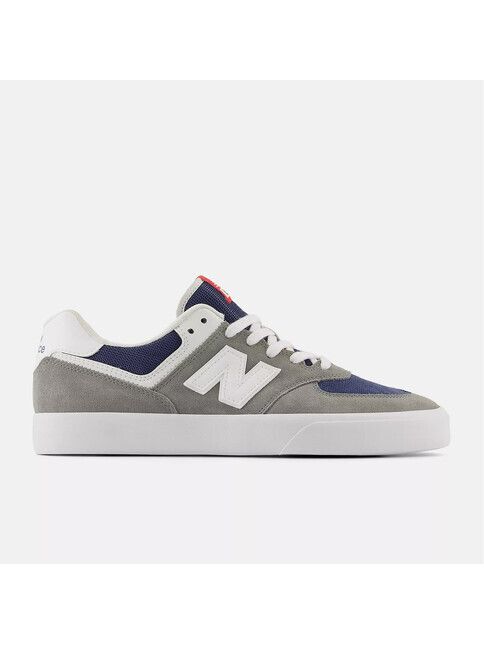
Skateboard Numeric 574Vulc grey white
